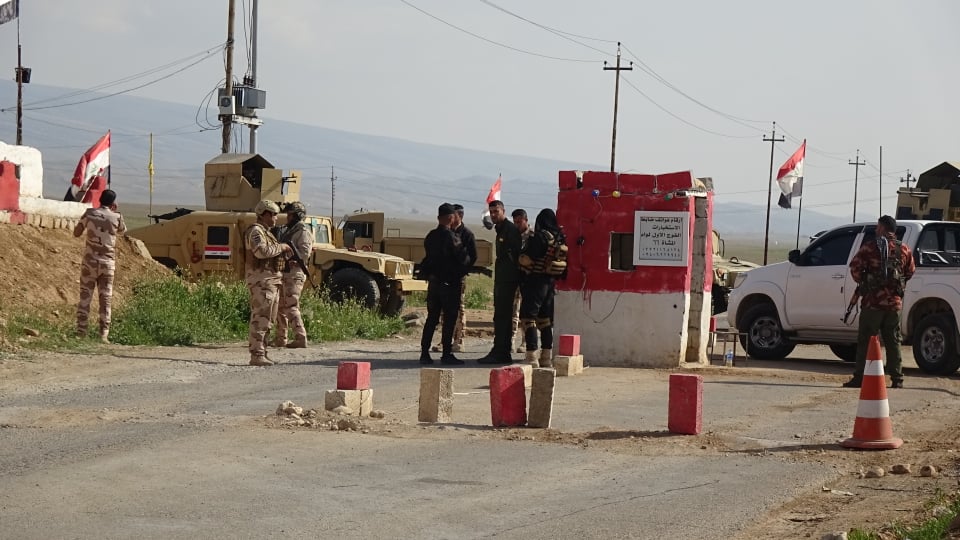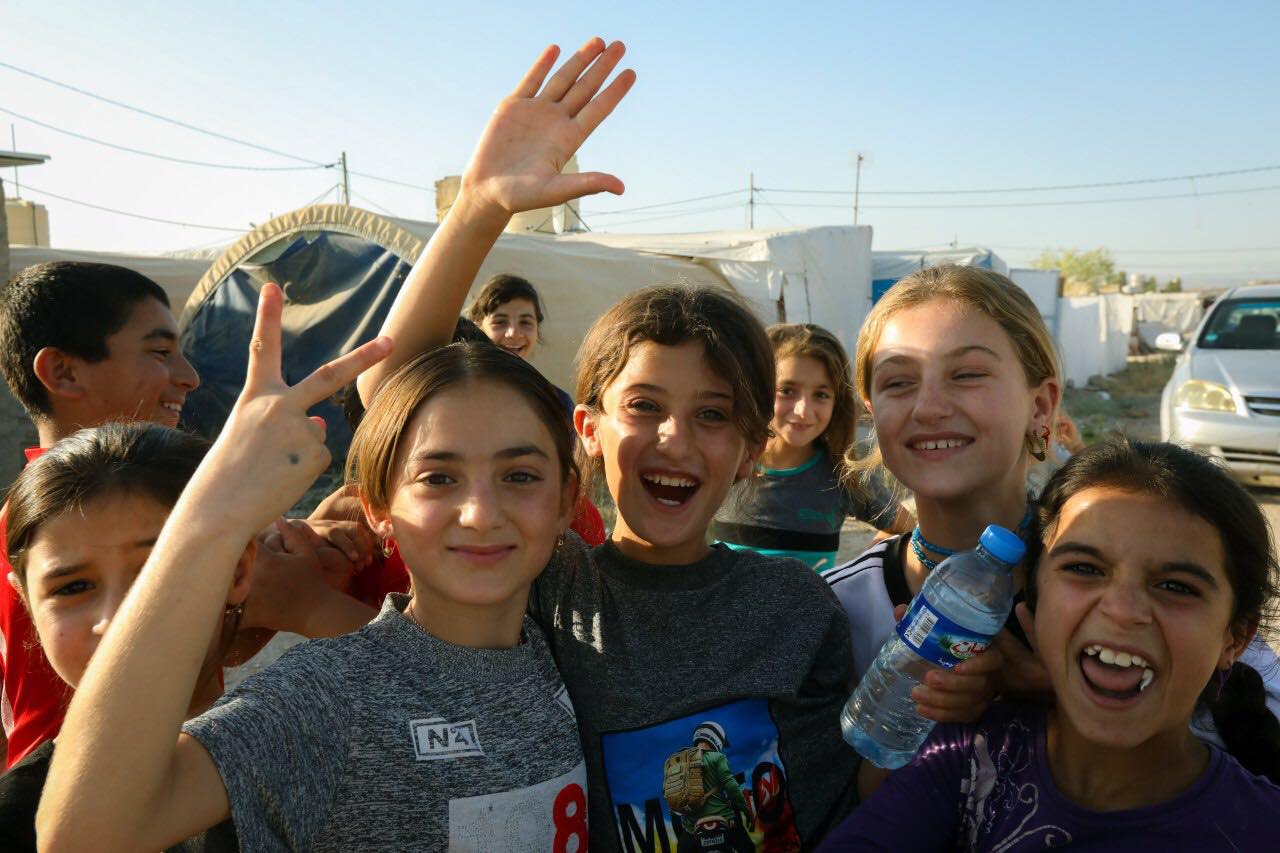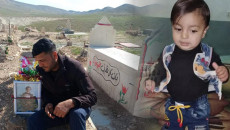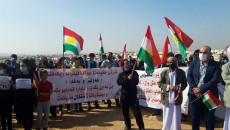Big part of the Ezidi community is still leading a miserable life in the camps for internally displaced people IDPs, hesitant to return to war-torn hometowns they left in August 2014 in fear of the atrocities by the extremist Jihadist group of Islamic State in Iraqi and Syria ISIS.
Tens of thousands fled to Europe looking for a safe heaven to put an end to the discrimination they faced at the hands of the Islamic group and neighbor majorities.
The returnees have taken the hard decision of life in sweet home yet its bitterness is torturing them every day as the region lacks minimum standards of life which requires regular and proper basic public services of water, power, education, healthcare and ahead of all safety, stability and security.
Shingal district west of Nineveh on the border with Syria, home to tens of thousands of Ezidis, was retaken by Iraqi forces in October 2015 yet up today most of its inhabitants live under tents in the camps Bersivi, Kabartw, Isyan and others in Duhok, Erbil and Sulaimaniyah.
Ja’far Simo, director of religious endowment (Awqaf) of Ezidis in Duhok, said over 27,000 Ezidi families are still residing IDP camps in the adjacent Kurdistan region.
“Ezidis are reluctant to return home due the devastation caused to Shingal infrastructure and carelessness of the central Iraqi and Kurdistan regional government (KRG) toward the city and its people,” said Ezidi activist Nassir Haji.
“Ezidis are reluctant to return home due the devastation caused to Shingal infrastructure and carelessness of the central Iraqi and Kurdistan regional government.”
Haji says Ezidis do not trust the successive governments trying to control Shingal and do not want to return home because “they have not touched any concrete solutions pulls them out from their miserable reality since years.”
Shingal, located 120 west of Mosul, center of Nineveh province, used to be home to over half a million Ezidi ethno-religious minority and one of the disputed territories between Baghdad and Erbil. Ezidis also live in Bashiqa and other areas in Duhok Northern Province.
Seized in August 2014 by ISIS militants whom accused the Ezidis of being “devil worshippers,” Shingal has been the scene of tragedy: a genocidal campaign of killings, rape, abductions and enslavement, and the surviving community fled to safer-heaven IDP camps in the adjacent northern Kurdistan region.
Over 350,000 Ezidis fled Shingal to Kurdistan region and Shingal Mount. About 100,000 migrated to Europe, USA, Canada and Australia and over 100,000 are living in IDP camps in Kurdistan.
Duhok 2019- Kabatw camp for IDPs in Duhok is home for Ezidi IDPs. Photo by Ammar Aziz.
The security scene is another concern for Ezidis willing to return home.The complex texture of the security and administrative situation in Shingal is an aftermath of ISIS reign and a source of concern of the Ezidi community in general and in particular for those returned home in hope of leading a normal life post ISIS trauma.
In the Ezidi-dominant region of Shingal, only three thousand square km, Baghdad federal and Erbil regional governments compete to establish their rule: three local administrations want to administer the district, and eight different security forces are deployed, some loyal to Baghdad, others to Erbil.
The militant groups are Iran-backed Shiite Popular Mobilization Forces PMF, Shingal Protection Units (YBSh) and EzidkhanAsayish which are pro-PKK (Kurdistan Workers’ Party fighting Turkey and controlling some regions in Iraq), local Police, Iraqi army, Ezidkhan Peshmerga and KRG's Peshmerga (Kurdish fighter).
“There is no security force that controls the situation and other forces which is a confusion for Shingalis despite the fact the security situation is relatively stable,” said Daud Jundi, senior official in Shingal of Patriotic Union of Kurdistan, PUK, one of the leading Kurdish parties.
“There is no security force that controls the situation and other forces which is a confusion for Shingalis despite the fact the security situation is relatively stable,”
The Iraqi army is trying hard to implementShingal agreement concluded by Erbil and Baghdad last October which aims at restoring stability and reconstruction to the region through withdrawal of all armed groups from the area, restore fresh local administration, appoint a new mayor, reconstruction and supply of basic public services in order to pave the way for volunteer return of thousands of Ezidi IDPs living in tens of camps in Kurdistan region.
“The agreement paves the road for reconstruction of the town but it is still ink on paper,” Jundi added.
The deal is opposed by pro-PKK groups whom reject to leave Shingal its mountains arguing they played role in its liberation from ISIS by its “local” members. Part of the Shingali public deny the agreement saying they have not been consulted in drafting an agreement that touches their current daily life and future.
They blame Baghdad and Erbil, particularly KDP who was running the region up to 2014, for leaving them to face genocide at the hands of ISIS, armless and defenseless.
Over 3,000 Ezidi women, girls and children were freed while nearly 3,000 kidnapped women and girls are still missing after many were trafficked and enslaved in other parts of former IS territory.
Since the military defeat of IS, discord over security arrangements, public services, and the lack of a unified administration, have plagued victims and survivors.

Shingal March 11,2021- tension and clashes between supporter of prop-PKK administration and Iraqi army in a checkpoint at Tal Uzer. Photo by Ibrahim Ezidi.
A small number of families happily returned to Shingal when ISIS was ousted in October 2015. Covid-19 pandemic and its aftermath such as unemployment, pushed more families toward home.
“About one third of the IDPs are back home,” PUK local official said.
As IS invasion of the region and the fight against it led to vast destruction that requires tens of billions, the reconstruction process is very slow. Lack of security, stability, poor infrastructure and unemployment makes it hard for the vulnerable community to return home.
However, the vulnerable community thrives to unite and overcome the hardships mounting day after day.
“We have chosen life in Shingal and won’t leave the lands of our parents and grandparents because life won’t be resumed without its people,” said JalaKhidhir, an Ezidi returned to Tal Banat settlement south of Shingal.
Khidir describes life in camp “as prison and continuous fear of fire” under cloth tents, where several cases of fire were reported and claimed lives. “I am back to build a new life and job opportunity for me and my kids as man feels comfortable only at home.”
“I am back to build a new life and job opportunity for me and my kids as man feels comfortable only at home.”
Khidir faced difficulties in returning home. “Life in Shingal is hard somehow because the infrastructure of is destructed and no access to proper services.”

A street in Shingal shows scope of devastation in the town not removed up today. Photo by KirkukNow.
Others complain that poltical dispute has generated more unrest and less reconstruction in the region.
“If Shingal had been rebuilt and life requirements provided, more IDPs would have come back,” said Qasim Khalaf, who returned to live in his house in Dohla settlement of Shimalsub-district of Shingal. “The big number of the political parties has become a concern for IDPs yet still people come back.”
Mahma Khalil, one of the mayors of Shingal, supported by KDP and based in Duhok, said all factors, political, security and service, hinder the voluntary return of the Ezidis.
Figures by KRG office of rescue of Ezidis in last February state that 150,000 Ezidis returned home out of 360,000. Over 100,000 migrated abroad and chosen life in exile.
“I do not think about return though my family are still in Iraq,” said Nizar Bahjat, 29, an Ezidi whom quit attending University of Mosul following displacement and lives in Germany.
“Instability in terms of security and economy in the Ezidi inhabited region compared to Germany is never encouraging to return home.
The divided community still has hopes for a better future once real reconstruction is resumed and the public have access to facilities.
“Life will be back to Shingal which will look brighter with your return. This is our land and it is our duty to protect it,” Qasim Khalaf called on his community members in the camps.








